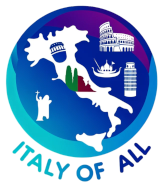The province of Lucca, nestled in the northwestern part of Tuscany, Italy, is celebrated for its rich historical legacy, stunning architectural landmarks, and the lush, verdant landscapes that surround it. Known for its well-preserved Renaissance walls that encircle the old city, Lucca offers a blend of cultural heritage and charming tranquility.
Geographically, Lucca is characterized by a variety of landscapes, from the sandy beaches of the Versilia coast to the rugged Apuan Alps, known for their marble quarries. The province also includes parts of the fertile Serchio Valley, ideal for agriculture, and the scenic Garfagnana area, with its dense forests and mountainous terrain, which is popular among hikers and nature enthusiasts.
Historically, Lucca boasts a history that dates back to Etruscan and Ancient Roman times, evident in its urban structure and some of its ruins. After becoming a Roman colony in 180 BC, Lucca enjoyed great prosperity in the Middle Ages as an independent city-state, later becoming a thriving center of silk trade. Its independence throughout the centuries has fostered a unique local identity and pride, which is still evident today.
Culturally, Lucca is a hub of music and arts, famously known as the birthplace of composers Giacomo Puccini and Luigi Boccherini. The city celebrates its musical heritage through various events and festivals, including the Lucca Summer Festival and the Puccini Opera Festival in nearby Torre del Lago. The historic city center, a labyrinth of cobblestoned streets and piazzas, is dotted with medieval churches, towers, and Renaissance palaces, encapsulating the artistic and architectural splendor of the region.
Cuisine in Lucca reflects the rich agricultural produce of the surrounding areas, featuring dishes based on olive oil, herbs, and vegetables. Local specialties include “tordelli lucchesi” (stuffed pasta similar to ravioli), “farro soup” (spelt soup typical of Garfagnana), and “buccellato” (a traditional sweet bread). The province is also known for its high-quality olive oil and local wines, such as those from the Colline Lucchesi and Montecarlo areas.
Economically, Lucca’s economy traditionally revolves around agriculture, particularly olive cultivation and winemaking. Additionally, the province has developed a strong industrial sector, including paper production, which is among the most important in Italy, as well as manufacturing related to furniture and food processing. Tourism also plays a significant role, driven by Lucca’s historical attractions, cultural festivals, and natural beauty.
Despite challenges like balancing modern development with historical preservation and environmental sustainability, Lucca is actively engaged in promoting cultural tourism and enhancing its agricultural and industrial sectors. Efforts are underway to maintain the cultural integrity of the province while fostering economic growth.
Overall, the province of Lucca offers a compelling mix of historical depth, cultural richness, and natural beauty. Its commitment to preserving its unique heritage while promoting sustainable development ensures its continued allure as a distinctive and cherished region in Tuscany.
Comuni in Lucca Province:
- Bagni di Lucca
- Borgo a Mozzano
- Barga
- Altopascio
- Castiglione di Garfagnana
- Camporgiano
- Capannori
- Castelnuovo di Garfagnana
- Careggine
- Camaiore
- Fosciandora
- Fabbriche di Vergemoli
- ** Coreglia Antelminelli
- Forte dei Marmi
- Gallicano
- Massarosa
- Lucca
- Molazzana
- Minucciano
- Porcari
- Piazza al Serchio
- Pieve Fosciana
- Pietrasanta
- Pescaglia
- Seravezza
- San Cristoforo
- Stazzema
- San Romano in Garfagnana
- Sillano Giuncugnano
- Vagli Sotto
- Viareggio
- Villa Collemandina
- Villa Basilica
